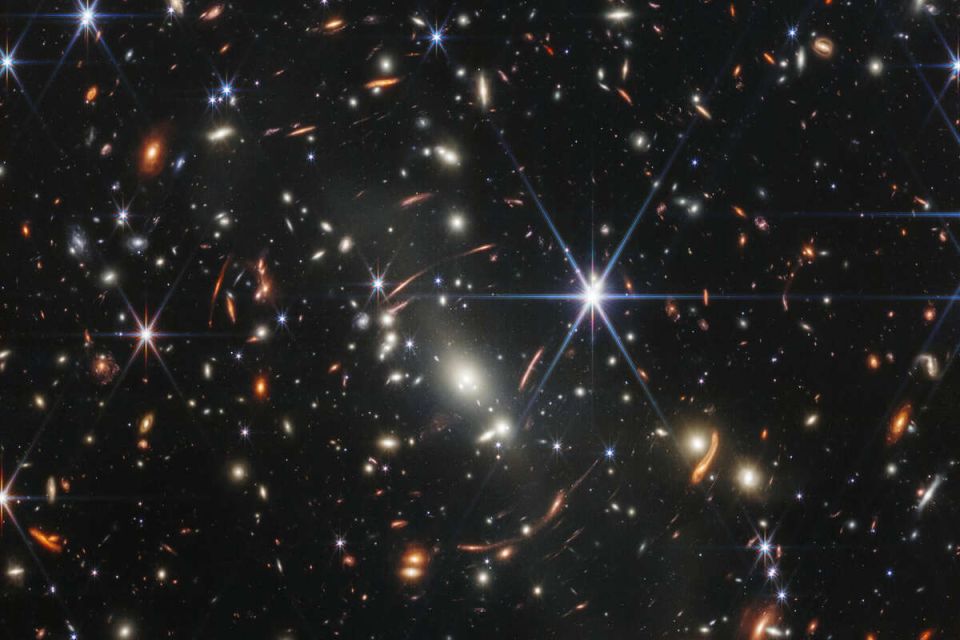This Lord's day eve, consider the deep things observed by physics and astronomy.
We live on a very unique blue dot that's like a grain of sand in an unfathomably-sized ocean containing innumerable other grains of sand, all of which we've found so far being incapable of sustaining anything like human life. These grains of sand revolve around other glowing grains of sand, that revolve together in clusters that further flow in a delicate dance, all set in motion just so according to very precise tolerances. If even one of the many physical constants we've measured were off by just a small fraction, it's likely that there would not be the order we see amidst the constant march of entropy through time. There would be chaos. There would most likely be no us.
Ponder the vastness. Ponder the probabilities. If you've performed an earnest reflection of it all, you'll be scooping up your melted brain off the floor and have a much healthier perspective of just how much we actually matter in the grand scheme of things, and how very, very special we are, all at the same time.

Make hay, Haymaker.
Your weapons
are clarity and
the sword of the spirit.
From under
your helm of salvation you
will bring forth your war cry.
Anchor
your sabatons of peace,
plant
your shield of faith firmly in
front.
From the belt of truth
pull your horn, beat
your mighty fists on your
breastplate of righteousness and
blow a note so mighty and clear
as to strike
fear
into the heart of your enemies,
and into the heart of
the enemies of God.
We're safe here, she said, safe here
We all must be mistaken here
With miles of barren desert between
Scorched by wrath, bereft of life
Wind whispers lies into ears unseen
Destroyer of worlds, I've become to thee
That ruse has become our reality
Somewhere in this static dream
Calls from afar to battles unseen
I hear them as a reminder of what
You once were to someone given to thee
Like rage upon an albatross, mocking
and mocking the man of straw in me
The silence frozen, cold, bereft of grace
Leads us both to conclusions we dared not face
Yet time has built instead of eroded
Mountains we think the other thinks they can erase
An errand of fools this is
An errand of fools this is
Rising from the ashes of the doom
It took two to create
Sinful beings being sinful, both ignoring
Mandates given and statutes placed
Harbor of ice, this frozen embrace
Over cold winter's wind we can not hear it;
The words and the thoughts are misplaced
Riddles of riddles both understand, contextualized
Yet war from below slips in a virus disguised
Jumbled and jostled, the lyrical refrains
Talking in circles instead of face to face
Is there fear? Is there hate? What does God say?
It may be wise to to assess in this pitiful state
Compassion atrophied, a warrior poet once spake
Makes both forget that mountains are moved
And ocean basins scraped
By one and only one, the One in Three
And perhaps what I am to you is unclear
For it is only for Him to see until time appointed
If those plans be of He. Who can know, down here?
Until it is revealed to to one, to all, to we
The daughter is the main concern; Anything else
Is left at the feet of Christ the King.
